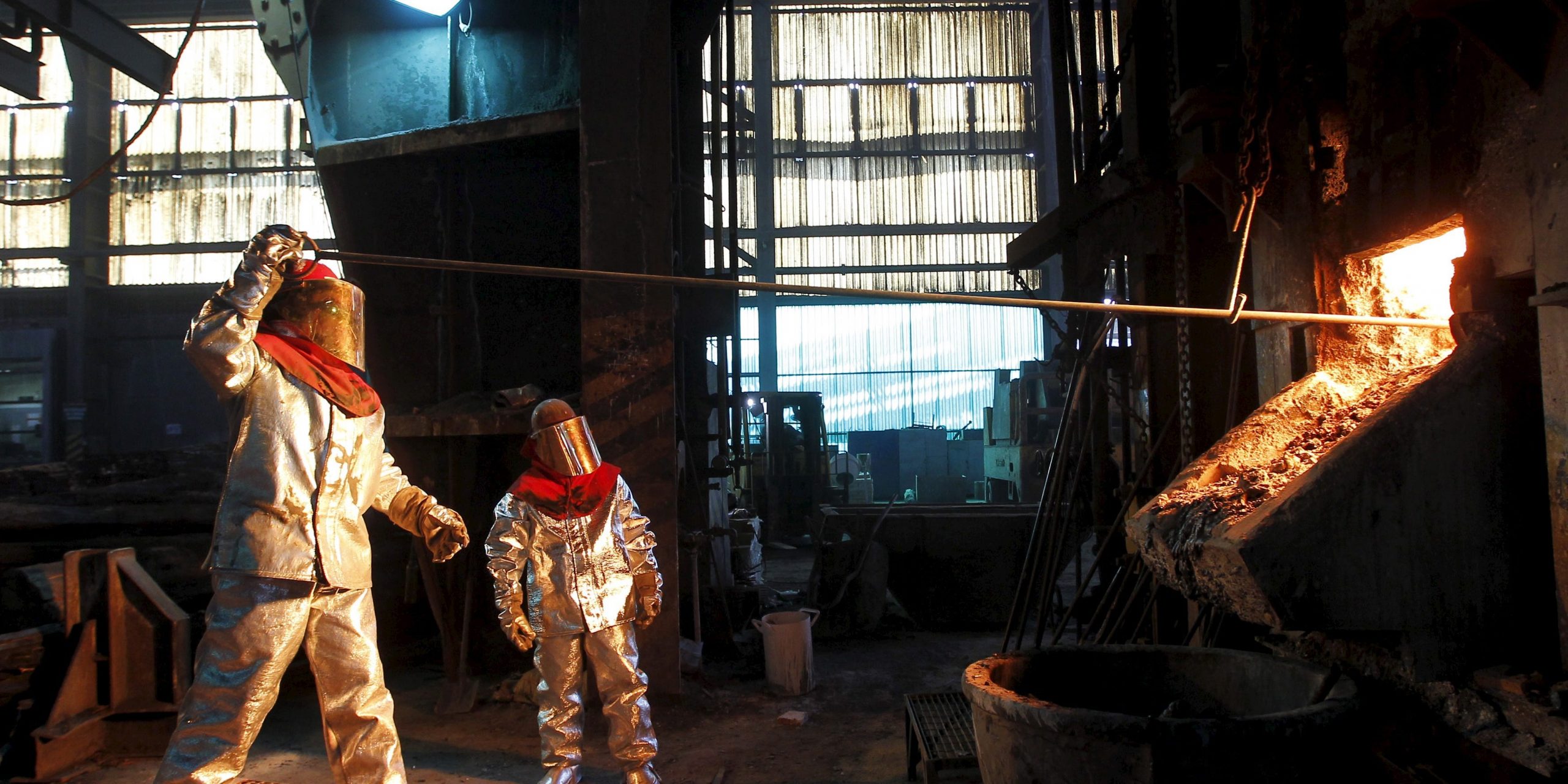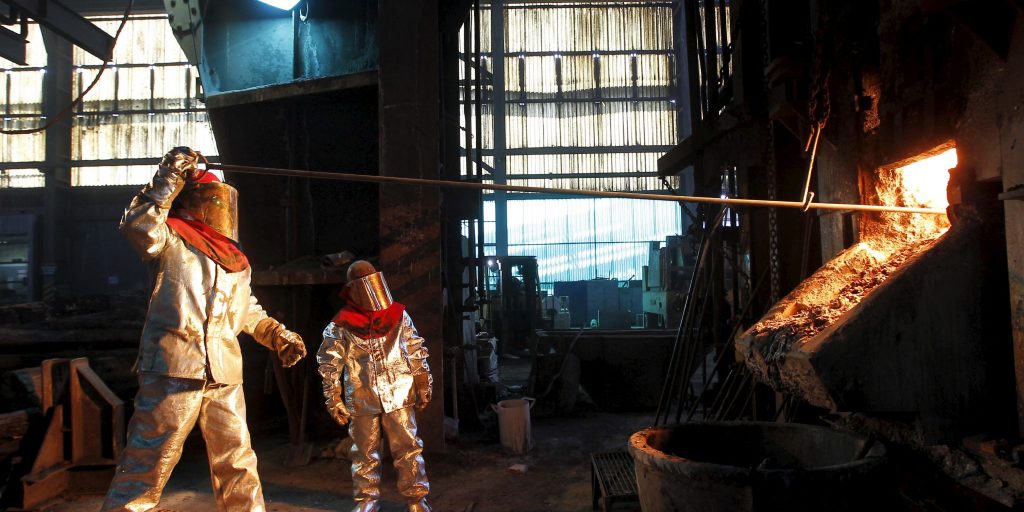
REUTERS/Rodrigo Garrido
- Andrew Snowdon of Goldman Sachs broke down how a supply shortage in copper mining projects will propel the metal's price higher.
- The firm recently said the metal is "the new oil," and could reach $15,000 by 2025.
- Snowdon said mining projects are hesitant to invest in growth, and the copper price will need to soar even higher to change that.
- Sign up here for our daily newsletter, 10 Things Before the Opening Bell.
Goldman Sachs recently published a note declaring copper "the new oil," and forecasting it could reach $15,000 by 2025 as the world transitions to clean energy.
The firm said copper is the most critical raw material in the world's path towards net zero emissions because it's used in everything from electric vehicles to wind turbines and solar power.
In a recent Goldman Sachs podcast episode, Nick Snowdon, one of the researchers, broke down why the soft metal is facing a record supply shortage that will propel the price higher.
"The long-term supply gap in the markets, so when you look forward ten years, that gap currently stands at just over 8 million tons, so nearly 40 percent of the size of the market in terms of the long-term shortfall," said Nick Snowdon. "That's larger than anything we've seen in the history of the copper market."
The market will need an enormous number of copper mine projects approved to meet demand, he said. He stressed that the shortage of supply isn't in copper itself, but in mining projects.
"There is enough copper out there. This isn't a story of the depletion of copper ore. But there is a very limited list, currently, of copper projects," Snowden said.
Snowdon said the supply side is completely underprepared for the demand surge in copper that is set to come as countries move towards renewable energy initiatives. Over the last 12-18 months, he said hasn't seen a single new major copper project being approved.
"Essentially we're sleepwalking to huge deficits and scarcity. And prices will have to rise even higher than is currently our base case," Snowdon said.
One reason for the mining-supply shortage is because the mining sector has been in a very conservative setting in terms of its balance sheet activity, said Snowdon. The sector hasn't invested in early stage project development and so now, the quality of projects compared to 10 years ago is "very poor," the researcher said.
Even now, record price levels haven't caused a shift in supply investment like one might expect, he added.
That's because in the early 2010's, the mining sector invested heavily in projects, only for the price in copper to collapse shortly after, punishing any producer who invested heavily in new projects.
"That memory lingers really amongst the current generation of producer management," Snowdon said.
He also explained that ESG initiatives slow down the process of getting a mining permit approved. Additionally, the coronavirus created operational challenges in copper mining.
Snowdon said right now, the quality of mining projects is lower and the costs are higher, and the price of copper will need to move up even further before there's an incentive to invest in more projects.
"It's not an easy proposition of saying, "Okay, let's just invest in growth," because the economics are not as attractive as they were if you go back to the mid/late 2000s," said Snowdon.
He continued: "So, I think all of those are combining to generate this restraint. And really, the only thing that can break that has to come from price dynamics and an incredibly high price. And we don't think the current price is, yet, at the level to generate that shift."

